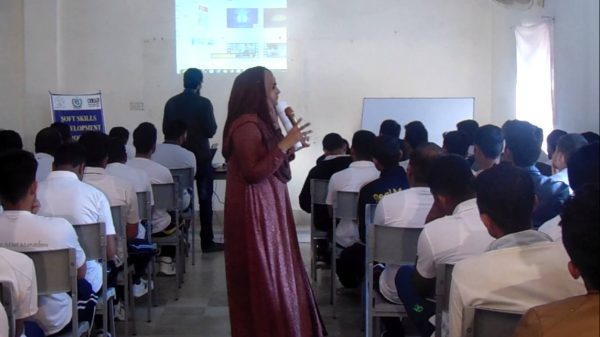tameer-e-hayat
“Life Skills are abilities of adoptive and positive behaviour which allow a person to adequately communicate with everyday life”
(W.H.O)
Tameer-e-Hayat


What are life skills?
Life skills are abilities and skills that help individuals navigate everyday life effectively, make informed decisions, and maintain their well-being. Some examples of essential life skills include:
1. Communication skills: Verbal and non-verbal communication, active listening, and conflict resolution.
2. Problem-solving skills: Critical thinking, decision-making, and adaptability.
3. Emotional intelligence: Self-awareness, empathy, and emotional regulation.
4. Time management and organization: Prioritizing tasks, setting goals, and managing time efficiently.
5. Financial literacy: Budgeting, saving, and responsible spending.
6. Self-care and wellness: Physical and mental health maintenance, stress management, and resilience.
7. Interpersonal skills: Building and maintaining relationships, teamwork, and leadership.
8. Adaptability and flexibility: Coping with change, uncertainty, and ambiguity.
9. Responsibility and accountability: Personal and social responsibility, reliability, and dependability.
10. Continuous learning: Seeking knowledge, skills development, and staying curious.
These life skills are essential for personal growth, relationships, career success, and overall well-being.
Impact of Life Skills
The impact of life skills on human life is profound and far-reaching! Acquiring life skills can have a significant positive impact on various aspects of an individual’s life, including:
1. Personal Growth: Life skills help individuals develop a sense of purpose, confidence, and self-awareness, leading to a more fulfilling life.
2. Relationships: Effective communication, empathy, and conflict resolution skills lead to stronger, more meaningful relationships.
3. Career Success: Life skills like problem-solving, time management, and adaptability are highly valued by employers, leading to greater career opportunities.
4. Mental Health: Life skills like emotional regulation, self-care, and stress management contribute to better mental health and well-being.
5. Resilience: Developing life skills helps individuals cope with adversity, trauma, and uncertainty, fostering resilience.
6. Academic Achievement: Life skills like goal-setting, organization, and self-motivation improve academic performance.
7. Financial Stability: Financial literacy and responsible spending habits lead to greater financial security.
8. Community Engagement: Life skills like teamwork, leadership, and social responsibility encourage active citizenship and community involvement.
9. Physical Health: Healthy habits and self-care practices contribute to better physical health and well-being.
10. Overall Happiness: Mastering life skills leads to a greater sense of purpose, satisfaction, and happiness in life.
In summary, life skills are essential for navigating life’s challenges, achieving personal growth, and unlocking overall potential!